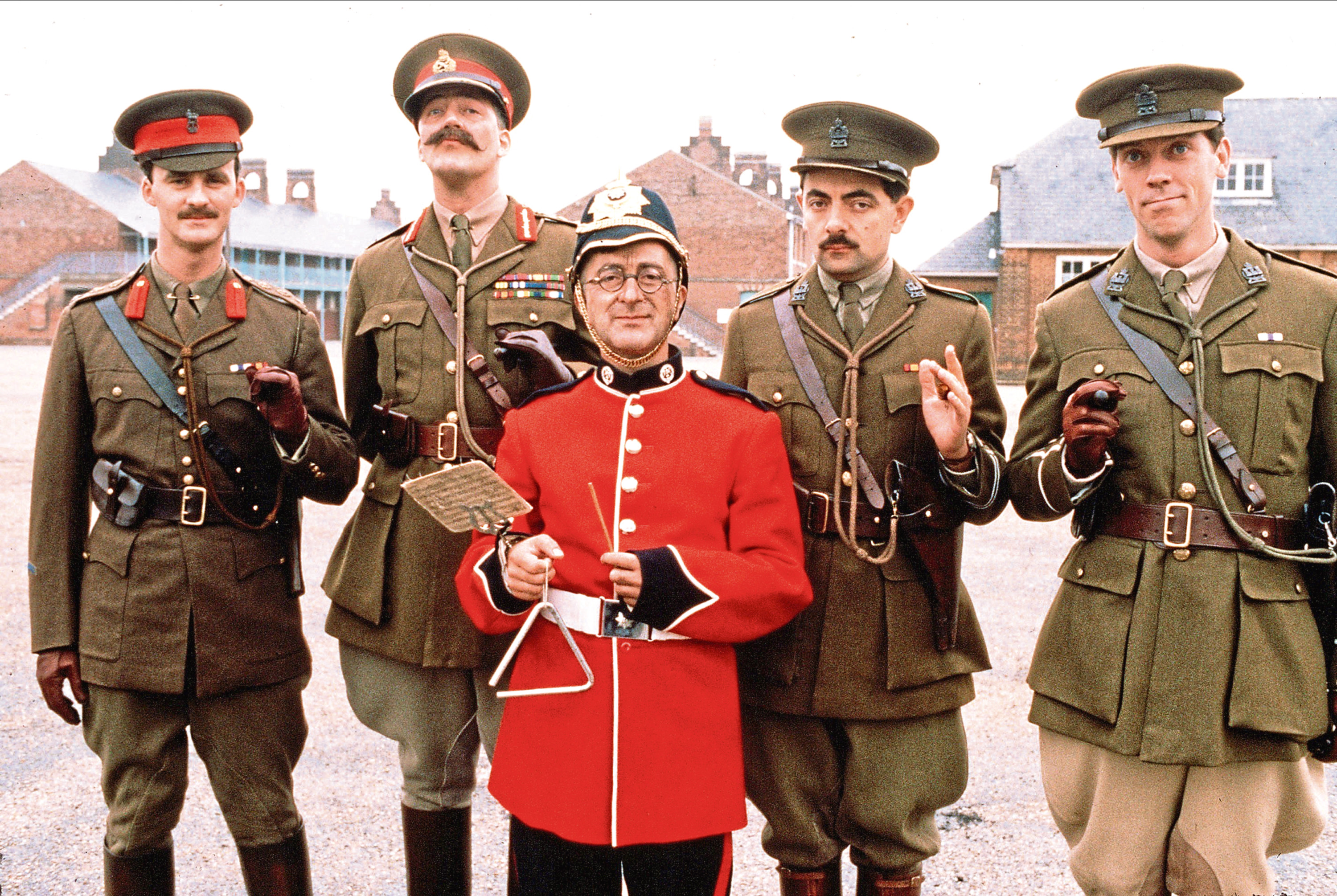
IS Blackadder bad for learning the real history of the First World War?
This seems a remarkable question, and would no doubt baffle the classic BBC sitcom’s creator, John Lloyd.
The hour I spent in history buff Mr Lloyd’s company a few years ago remains my favourite-ever interview and I remember his delight at the fact schools were using Blackadder to help teach pupils about British history.
As a history graduate myself, I’ve never seen a better explanation of the corrupt nature of “rotten boroughs” in 19th Century British elections than the Dish And Dishonesty episode of Blackadder The Third, in which the wily Edmund connives to get Baldrick elected as an MP.
And Shaw Jr was treated to the entire run of Blackadder Goes Forth while studying the Great War for his Nat 5s.
But Sir Tony Robinson, the man who starred as Blackadder’s idiotic henchman Baldrick, had to leap into action to defend the programme against the then education secretary Michael Gove’s claim that “left-wing academics” are using it “to feed myths” about the First World War.
Gove said people’s understanding was being undermined by “misrepresentations” which reflected “an unhappy compulsion on the part of some to denigrate virtues such as patriotism, honour and courage”.
A bit rich, coming from the chap who later stabbed fellow Brexiteer Boris Johnson in the back, but anyhow.
Gove’s beef seemed to be that Blackadder perpetuates the idea of the British Tommies on the Western Front as “lions led by donkeys”, mere cannon-fodder for the befuddled old generals running the war from comfortable country-house billets miles from the front lines.
And it has to be said one of the series’ best lines sees Blackadder dismiss the latest plans for advance from Field Marshall Haig, played by Geoffrey Palmer who is seen nonchalantly sweeping dozens of toy soldiers off his map and into the bin, as “another gargantuan effort to move his drinks cabinet six inches closer to Berlin”.
Modern historians have quite a different view but, to be fair, that’s about the only mistake the show makes.
In the episode Private Plane, Blackadder, Baldrick and Hugh Laurie’s loveably dim Lieutenant George St Barleigh, sick of the mud, rats and danger of life in the trenches, volunteer to serve with the Royal Flying Corps.
They’re seduced by the RFC’s nickname of “the 20 Minuters”, thinking this refers to the amount of time they spend in the air before heading back to base.
As the squadron’s brash commanding officer Lord Flashheart, played brilliantly by the ever over-the-top Rik Mayall, says: “Smoke me a kipper, I’ll be back for breakfast!”
In fact, the moniker came from the fact that newly-trained pilots over the Western Front had a LIFE EXPECTANCY of just 20 minutes on their first combat sortie.
And if you did survive the Germans setting fire to your machine, you faced the unenviable choice between burning alive or leaping to your death as parachutes weren’t generally issued.
The scornful Captain Edmund B also recalled playing football against the German troops during the famous Christmas truce of 1914, saying: “Both sides advanced further during one Christmas booze-up than they did in the next two and a half years of war.”
Mark Connelly, professor of modern British history at the University of Kent, says: “I love Blackadder but it is a reflection of a view of the First World War from the 1960s and 70s. You are seeing how the writers Richard Curtis and Ben Elton were taught about the war.
“It’s a bit like saying you would base your vision of what happened at Agincourt on Shakespeare’s Henry V.
“What you are getting is a particular view of the experience and in Shakespeare’s case by someone who never witnessed it, very similar to Curtis and Elton.
“The problem is that programmes such as Blackadder are invested with a status that almost makes them as hallowed as genuine sources.
“People forget they are written by people decades afterwards.”
However, Annika Mombauer, a senior lecturer in modern European history at The Open University, argues: “Blackadder engages with the experiences of war, and with its myths, in ways which move an audience.
“The First World War has been controversial since the moment it began, there is no right or wrong way of thinking about it, there are just lots of different, often conflicting, interpretations.
“For at least the past 15 years no serious military historian of any political persuasion has entertained the ‘lions led by donkeys’ caricature Michael Gove opposes.”
Dr Catriona Pennell, senior lecturer in history at the University of Exeter, thinks Blackadder does a fine job of interesting young people in history – and makes a point that might embarrass Mr Gove.
She says: “The classic myth of British generals being ‘donkeys’ – continued in Blackadder with the imbecile General Melchett, played by Stephen Fry – was actually put forward by a member of Thatcher’s cabinet, Alan Clark, in his book The Donkeys in 1961.
“It’s not about political bias at all, it’s about different historical interpretations based on evidence available at the time, and the context within which historians were writing.
“Teachers use Blackadder as a comedic window into a more detailed and complex discussion, to get discussion going among a class that is emotionally distanced from a conflict 100 years old.”

Enjoy the convenience of having The Sunday Post delivered as a digital ePaper straight to your smartphone, tablet or computer.
Subscribe for only £5.49 a month and enjoy all the benefits of the printed paper as a digital replica.
Subscribe